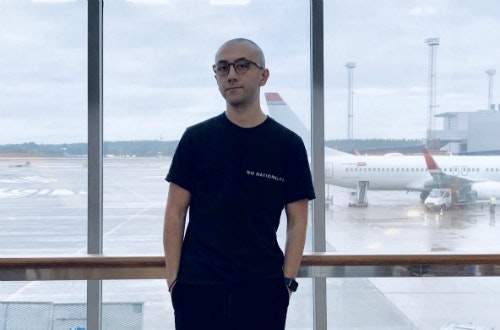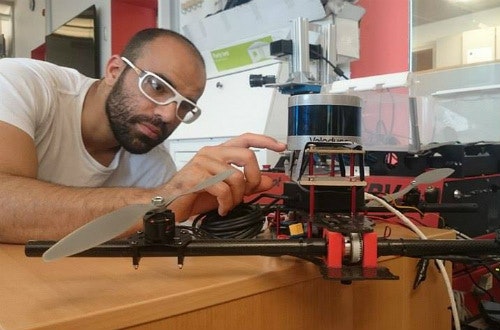With the lack of experienced developers, companies in Sweden are increasingly looking beyond Europe to find new recruits. However, the legislation for hiring people outside of the European Union is tricky to follow and has forced a number of developers to leave the country when their visa extensions have been declined by the immigration authorities.
It is not just small startups that are struggling to follow the regulations; even companies such as Spotify have been in the hot-spot – in 2017 15 of the company’s top hires were threatened with deportation.
The Swedish government is not against tech companies hiring people from outside Europe, but the immigration authorities are taking a very strict stance on any kind of visa applications and extensions. Despite the Swedish government’s call in the summer of 2017 to restrict the number of work-related visa-rejections, the deportation of IT-professionals has continued.
Missed to pay insurance – Work permit denied
One example is 28-year-old tech founder Farzad Ban, who was forced to leave Sweden after running his business there for five years. His story was played out in local press after he published a post on Medium in the middle of December.
Sifted reached him via Skype in Thailand, where he is planning to move his company.
”I will base the company here now. I’ve paid enough taxes in Sweden,” he says.

After running his Swedish company from abroad he came to Sweden with a work permit in 2013. The work visa was successfully extended after a couple of years but when he applied for a permanent visa last year, he was turned down because another company, where he was employed, failed to pay the necessary fees for him.
Ban explains that the insurance company used by the tech company did not cover the insurance for his particular job title and that the authorities did not notice until much too late for him to change the status.
”There are four different insurances that companies need to pay for non-EU employees and as soon as we found out about it, we paid them all. But it was too late. The problem is that Sweden is using an old system that does not notice missing insurances until about five years later,” Ban says.
What to look out for when hiring from outside Europe in Sweden
What makes Farzad Ban's story even crazier is that his tech company 3Drops has worked with about 60 governments to digitalise visa processes.
”We create a system that simplifies the process of visa handling and applications. We try to point to the things I missed when I had my first process eight years ago and to make sure that others do not end up in the same situation as I did. Communication between different government teams is really slow and limited but with today’s tech solutions thousands of visa tickets can be handled in a very short amount of time.”
Did not take holiday – Visa application denied
Across the other side of the globe Ahmed AlNomany, co-founder of the drone startup Inkonova, is commuting to his home 50 miles outside Stockholm.
Born and raised in Dubai, AlNomany chose to set up his company in Sweden in 2015, at the startup hub Things at the Stockholm University of Technology.
AlNomany had a two-year work permit; it wasn’t until the end of 2017, when he wanted to extend his visa, that he got caught in the immigration conundrum.
”My application was refused and the reason I was given was that I had paid myself too little salary. And it wasn’t that I had paid myself less than the minimum wage over the years, but that I had paid myself less than was in my contract. But as a founder of a company, I argued that I had to prioritise paying taxes and salaries for employees.”

In 2018 he received a new decision but this time they added another issue - he hadn’t taken any holiday whilst running the company, which the Swedish system requires all non-EU employees to take.
”We are running a deep tech company and of course I wouldn’t say no to holiday and salary, but I did not have the luxury to take a holiday. Swedish citizens that start a company have the right to go without a salary for a year, which is completely normal.”
The Swedish legal system differentiates between EU and non-EU citizens to ensure that non-EU members are not taken advantage of with worse working conditions and pay. However, in the case of tech companies, the law can be seen as taking overzealous care of the employees.
”A majority of employees in Sweden do not have the insurances that the authorities demand companies pay for overseas staff. And when something like this goes wrong the employers are not even slapped with a fine. It’s the employee that has to take the consequences,” says Ban.
”If they could see me as a person more than a piece of paper they could see that I have been running a company that hired people, paid taxes and had lots of multinational clients. Instead, I got deported.”
Ahmed AlNomany is still fighting his deportation and considering the options for his company. A Japanese company is acquiring a significant stake in his company and he could in fact set up another company or take employment at another firm. However, he believes he can change the status quo for other startup companies in Sweden if he succeeds in the court of appeal.
”I want to see this through and push for change so that the law can become fairer. If I only save myself then the core problem won’t go away. I see this as a David and Goliath situation, but this is also important for the innovation structure and economy in Sweden.”
What is the visa situation in your country?



